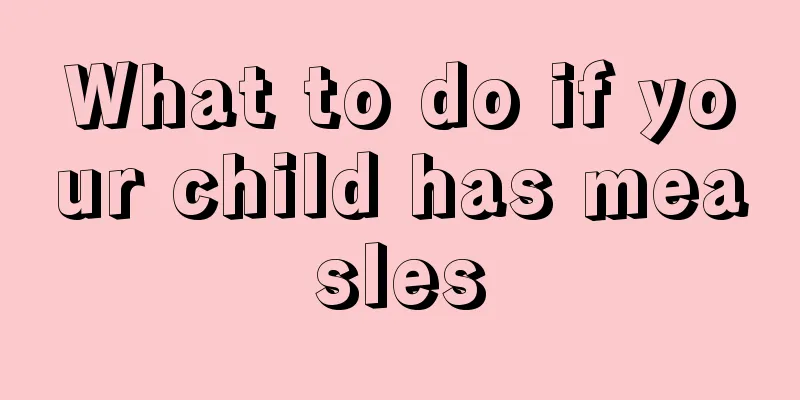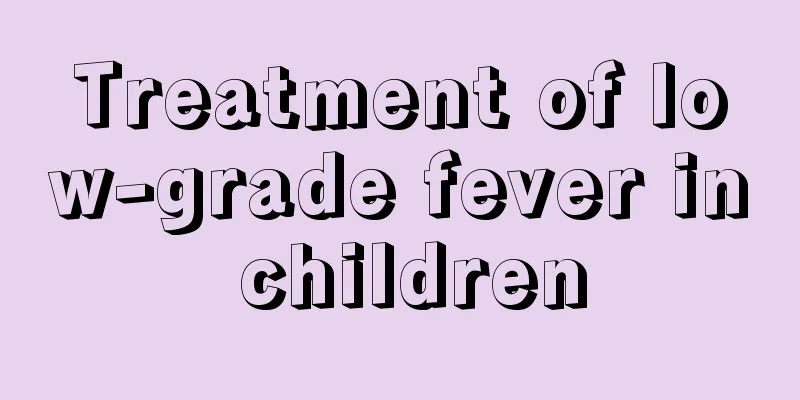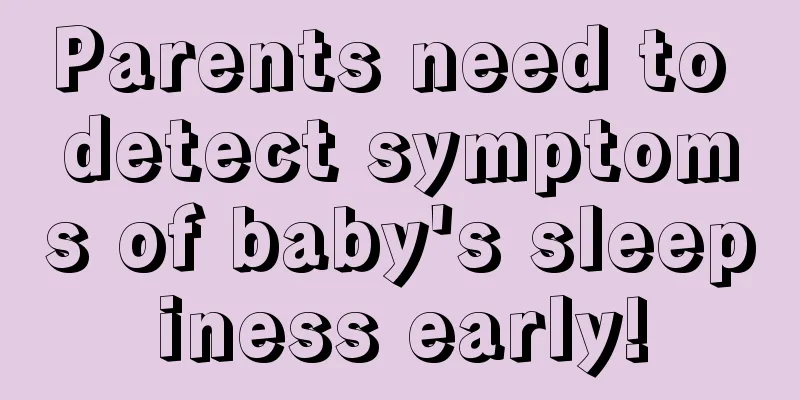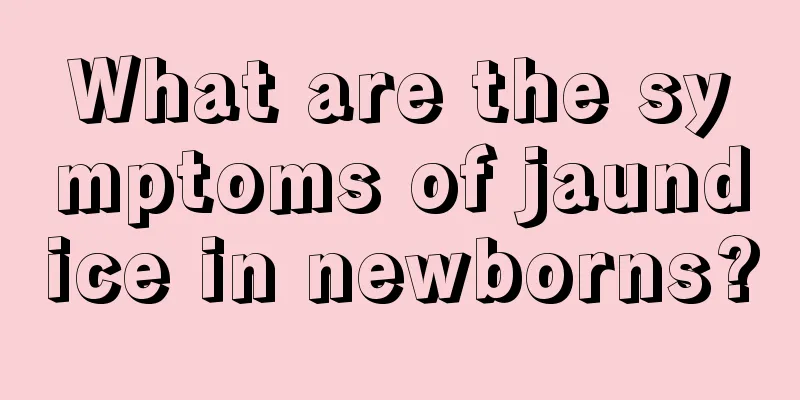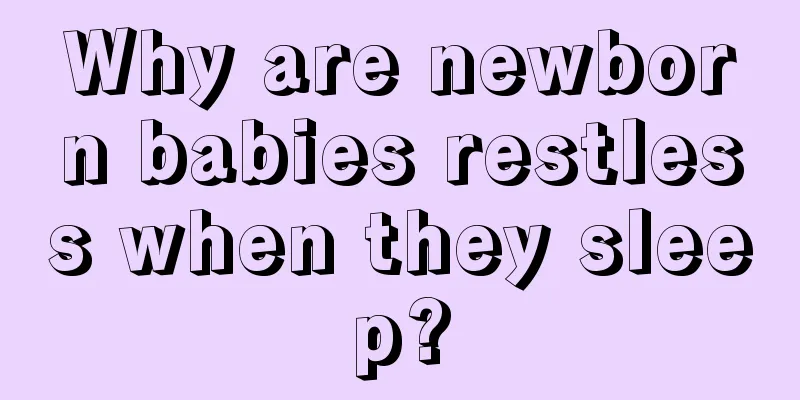What are the types of fever in children?
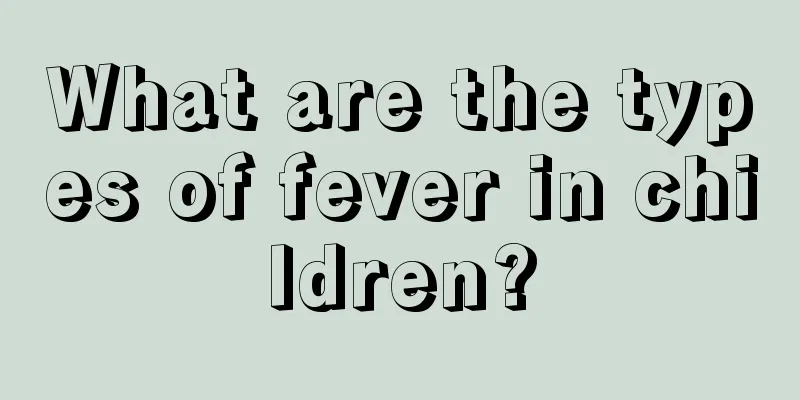
|
Whenever a child is sick, parents are exhausted. Parents all over the world hope that their children can grow up healthy. But how is it possible for people not to get sick if they eat a variety of grains? The same goes for children. Children getting sick is an inevitable part of their growth process, and parents need to find out the cause of the illness before they can provide appropriate treatment. Here are some types of fever in young children. (1) Retention fever The body temperature of prolonged fever is often above 39°C, and the temperature fluctuates within a small range during the day and night. The temperature is generally lower in the morning than in the afternoon, but the fluctuation does not exceed 1°C within 24 hours. This type of fever can last for several days or weeks, and the fever may subside gradually or suddenly. Clinically, it is common in the extreme stages of acute febrile diseases such as lobar pneumonia, typhoid fever, typhus, and scrub typhus. (2) Relaxation fever The body temperature of remittent fever varies greatly, and the temperature fluctuates greatly between day and night. When fever occurs, the body temperature can be above 39°C, and the temperature difference within 24 hours can reach 1.5°C to 2.0°C or more, but the lowest temperature is still above normal body temperature. It is common in clinical practice in sepsis, severe pulmonary tuberculosis, sepsis, liver abscess, bronchopneumonia, subacute bacterial endocarditis, rheumatic fever, typhoid fever, malignant histiocytosis, etc. (3) Intermittent heat In intermittent fever, the body temperature may suddenly rise to over 39°C, with chills or shivering at first. After a few hours, the body temperature returns to normal and the patient sweats profusely. Then, after a few hours or 1 to 2 days, the body temperature suddenly rises again, and the symptoms recur repeatedly. This alternation of high fever and no fever is called intermittent fever. It is common in clinical practice for malaria, such as tertian malaria or quartan malaria, purulent focal infection, pyelonephritis, etc. (4) Heat consumption The temperature fluctuation range of consumption fever is more significant than that of relaxation fever, and the temperature difference within 24 hours is between 3℃ and 5℃. It is common in clinical practice in sepsis, severe active pulmonary tuberculosis, etc. (6) Undulant fever The body temperature gradually rises to a peak within a few days, then gradually drops to a slight fever or normal temperature, and recurs soon. The body temperature curve fluctuates in a wave-like manner, which is called undulating fever. It is common in clinical practice in brucellosis, malignant lymphoma, pleurisy, periodic fever, etc. The above introduces several types of fever in young children. I hope it can serve as a reference for parents. When a child has a fever, parents don't need to be too anxious and should handle it calmly. Taking your child to a regular hospital for examination in time and receiving regular treatment under the guidance of a doctor is the key to helping your child recover his health. |
<<: How many days does a child's fever usually last?
>>: What to do if your child has a fever and is in good spirits
Recommend
What causes nephrotic syndrome in children? The truth is this
The causes of nephrotic syndrome in children are ...
Why does a one and a half year old baby have green diarrhea?
Some mothers' babies are still having green a...
Why is my baby not sleeping well for three months?
Many parents are troubled by their children's...
Child coughs and wheezing in the lungs
Children's lungs are very fragile when they a...
What causes children's urine to smell bad?
Some parents may find that their children's u...
What is the cause of abdominal bloating in newborns?
We often see abdominal bloating in newborns in ou...
What should I do if my five-month-old child coughs and has phlegm?
For children, colds and coughs are common. If you...
What is the sleep time of a baby over one month old?
We all know that after the baby is born, he spend...
How to treat balanitis in children?
Parents generally pay more attention to the genit...
Black vertical lines on children's nails
During the growth of children, parents must pay a...
What should children eat if they have diarrhea and repeated fever?
Diarrhea is really uncomfortable. Not only does i...
What should I do if my 10-year-old child has a fever of 39 degrees?
Some time ago, a friend of mine said that his 10-...
Is high myocardial enzyme level in newborns serious?
After a newborn is born, if the child's myoca...
What's wrong with children's red corners of mouth?
Sometimes we will get bubbles at the corners of o...
What can children eat to get better quickly when they have a cough?
Because the baby's body has not yet fully dev...
